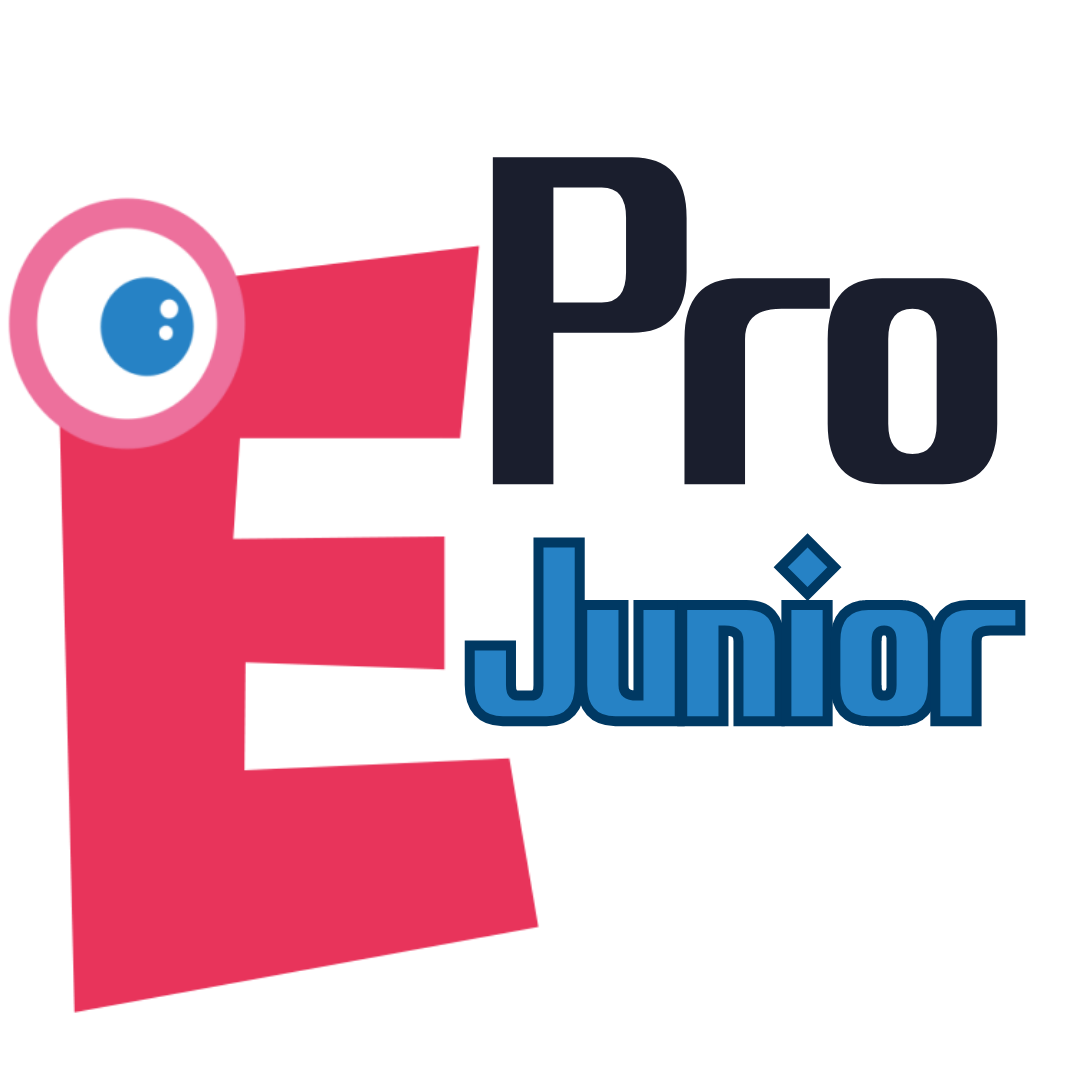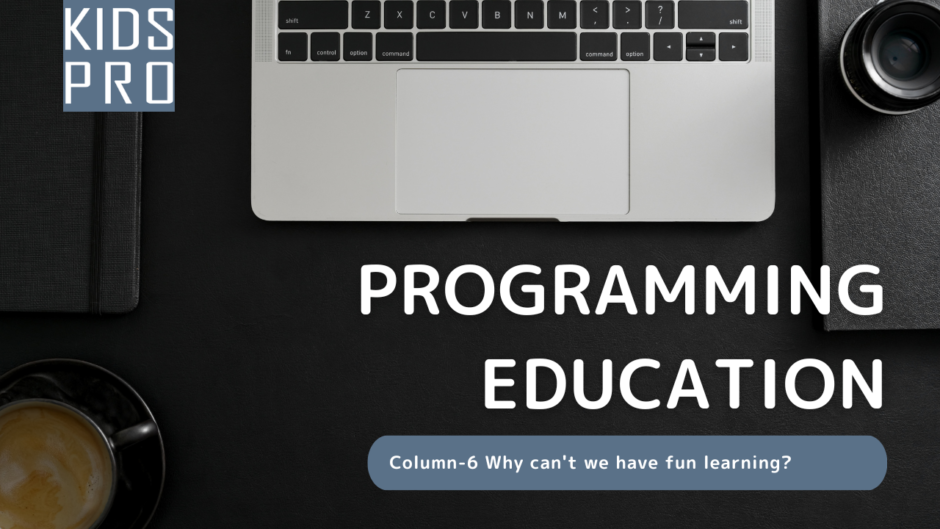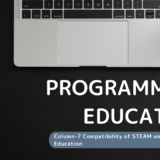What surprised me when I saw the Tokyo Olympics last year was how many players looked like they were having fun playing. Decades ago, the sight we saw at the Olympics was of players carrying Japan on their backs, stiff and nervous. Today, however, the prevailing view is that they should enjoy playing for their own sake. And it seems that the more players enjoy playing, the better the results. On the other hand, even if the results are not good, they are not reprimanded like in the old days, “Don’t be so lazy! Even if the results are not good, they are no longer reprimanded like in the past.
I believe that learning and programming should be fun. Some programming materials include characters that can be used in games and sound effects of farts so that children can learn in a fun way. If children have to learn the difference between strings and numbers first, then control statements, and so on, as in introductory programming books for adults, most children will lose interest and motivation to learn.
What’s the point of programming games and such? But games are a form of entertainment, and in fact, they use state-of-the-art technology that is superior to that used in corporate software.
While elementary and junior high school students may not be able to program high-tech games, they will naturally learn the difference between strings and numbers and variables if they want to display the score at the end of a game in Scratch, and they will learn about loops, conditional branches, events, messages, arrays, and functions if they want to make the game the way they want it. If you want to make games the way you want, you will need to understand programming concepts such as loops, conditional branches, events, messages, arrays, and functions. Scratch is also classified as object-oriented programming, rather than procedural programming, where the code is processed in sequence, and children will also learn object-oriented concepts, although they may not be aware of them.
It would be more fun for them to create the game they want to play and learn programming in the process, and they would be more motivated to learn. Perhaps children are not even aware that they are learning programming, and it is just an extension of play in their senses. I would like to see game programming and other forms of programming incorporated into programming classes.
Scratch and Springin’ also provide a mechanism for further enjoyment, with community sites where students can publish and comment on their own creations. I also recommend that students have an account. Both communities have strong guidelines that prohibit violations of the law.
 eJr Programming
eJr Programming 


